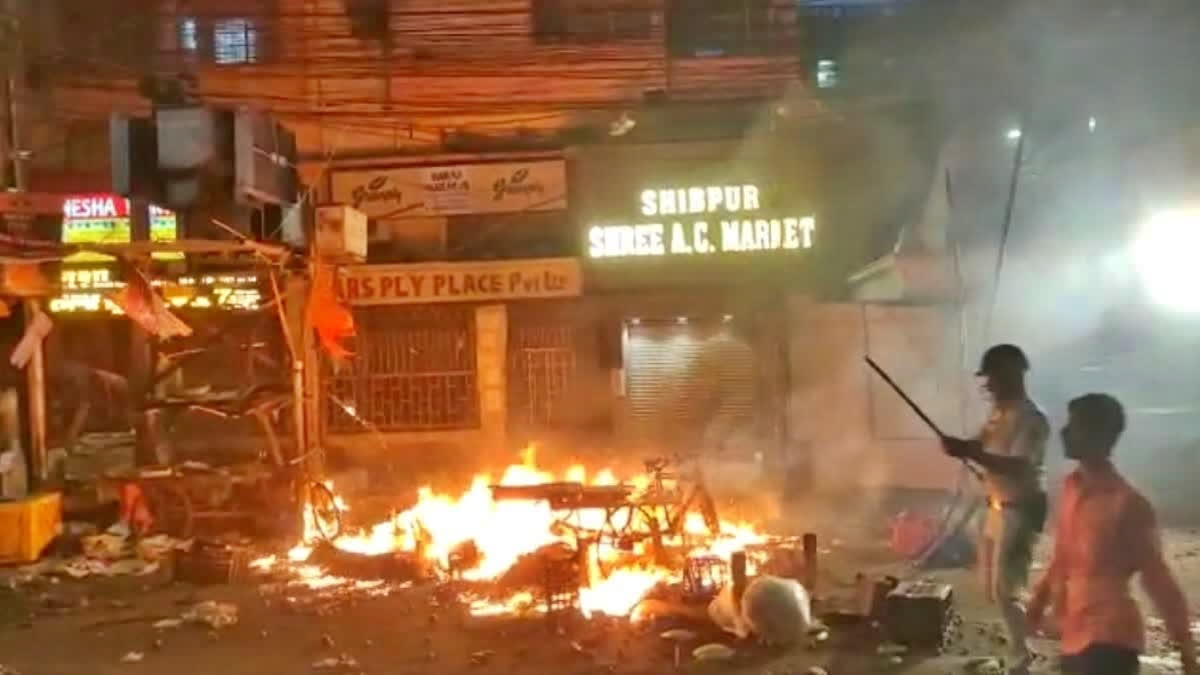Hyderabad:In March 2018 Maulana Imdadul Rashidi’s son was found dead after the violence that followed Ram Navami celebrations at Asansol in West Bengal. The body of Maulana Imdadul Rashidi’s son, Sibtulla Rashidi, was found two days after he went missing following a clash in Asansol’s Railpar area.
The imam Maulana not only appealed for peace and restraint but refused to identify the assailants saying that they were like his sons. He even threatened to leave the town if police pressurized him to identify the killers. That was the first year when BJP started Ram Navami celebrations on a large scale in West Bengal.
The sacrifice of Maulana Imdadul Rashidi is indicative enough of the religious tolerance in the state. The incident that could have brought an end to the string of violence on the occasion of religious ceremonies failed to create any impression because it was a more political tug of war between BJP and Trinamool Congress to polarise the votes than religious aggression. In the last five years apart from the Covid years of 2020 and 2021, there were more than 100 such incidents of violence leading to the death of nearly 10 people and the arrest of thousands.
In 2018, five people died and several others were injured, including Deputy Commissioner of Police Arindam Dutt Chowdhury, when some people allegedly threw stones at a Ram Navami rally in Asansol. The same was replicated in Telinipara in Hooghly when a minor inter-communal brawl turned into a huge clash in May 2019. The tension reached several neighboring places like Hooghly, Chandannagar, and Chinsurah, and the District Magistrate had to impose prohibitory orders under Section 144 to control the violence.
Violence percolating from religious processions is not an unknown phenomenon, but it was never such a persistent issue until 2018 when Dilip Ghosh, the then BJP state President, announced that they were going to conduct armed rallies during Ram Navami. Ghosh was arrested by the police for wielding a sword in a rally in Kharagpur, but that unleashed the string of violence that continues unabated even today. The Kharagpur incident was followed by a string of violence in several districts of the state, including Howrah, Hooghly, Murshidabad, Malda, West Burdwan, and West Midnapore. Youths came out openly with swords and guns, transforming a religious celebration into a platform for showcasing political strength.
Interestingly enough, the Trinamool Congress, to counter BJP’s religious aggression, started observing Hanuman Jayanti in the same year. In 2018, though BJP kept it a low-key affair, Trinamool Congress celebrated it across West Bengal. The ruling party took out colorful processions and organized Hanuman puja in various parts of the state. Senior party leaders and ministers were seen taking part in the celebrations.
"Violence in West Bengal is not a new thing, but violence from religious intolerance is something which the people of the state are not used to. It is definitely a process to polarize the votes. With the Panchayat election in the offing, these kinds of religio-political clashes will increase. This will surely benefit some political parties," a political expert said on the condition of anonymity.
